Sometimes what’s best for a city doesn’t have a price tag on it
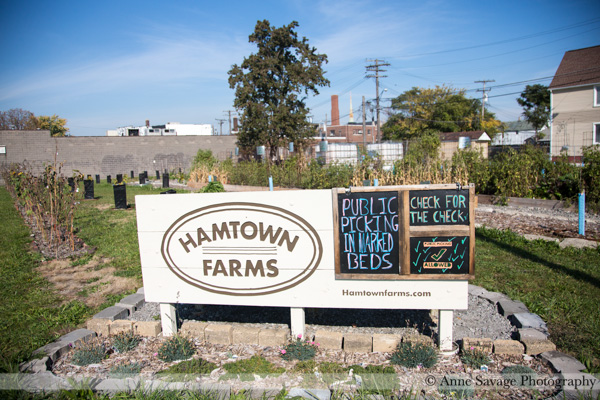
Photo credit: Anne C. Savage
Back 2011, Michael Davis, Julie Swartz, Evan Major, and Jeffrey Doe formed a vision for an urban farm and community garden on group of nine city-owned lots in Hamtramck, Michigan that had sat abandoned for thirty years. The lots were unable to be sold due to pending litigation so they approached Mayor Karen Majewski about using them for their project. Later that year, they were issued a permit under the city’s Adopt-A-Lot program to use the lots for a period of five years. Over the next two years, they transformed the lots into Hamtown Farms, a farm with garden plots and fruit trees, including an almost unheard of fruit called the pawpaw which was originally native to Michigan. (The city of Paw Paw is named after this tree which once grew there along the Paw Paw river shore.)

Photo credit: Anne C. Savage
In March of this year, a highly supportive Mayor Majewski signed a promissory note saying that, in the event the current organizers could no longer maintain the site, the City would “make all reasonable efforts to allow the donated trees to remain on the property for a minimum of 20 years”.

Aerial view of Hamtown Farms, photo credit: Sean Rouse, used with permission
Then, in June of this year, came the Emergency Manager. It’s Hamtramck’s second EM and, when Cathy Square entered the picture, the future of the project became uncertain. The lawsuit preventing the sale of city-owned lots was now behind them and Square announced that she would be selling the 400 lots to raise an estimated $200,000, including the five currently being farmed by Hamtown Farms. In September, Hamtown Farms offered to buy the lots for $500 each ($200,000/400 lots = $500/lot). Considering that the farm had already invested upwards of $40,000 in improving the land through direct contributions and donations, this seemed a reasonable offer.
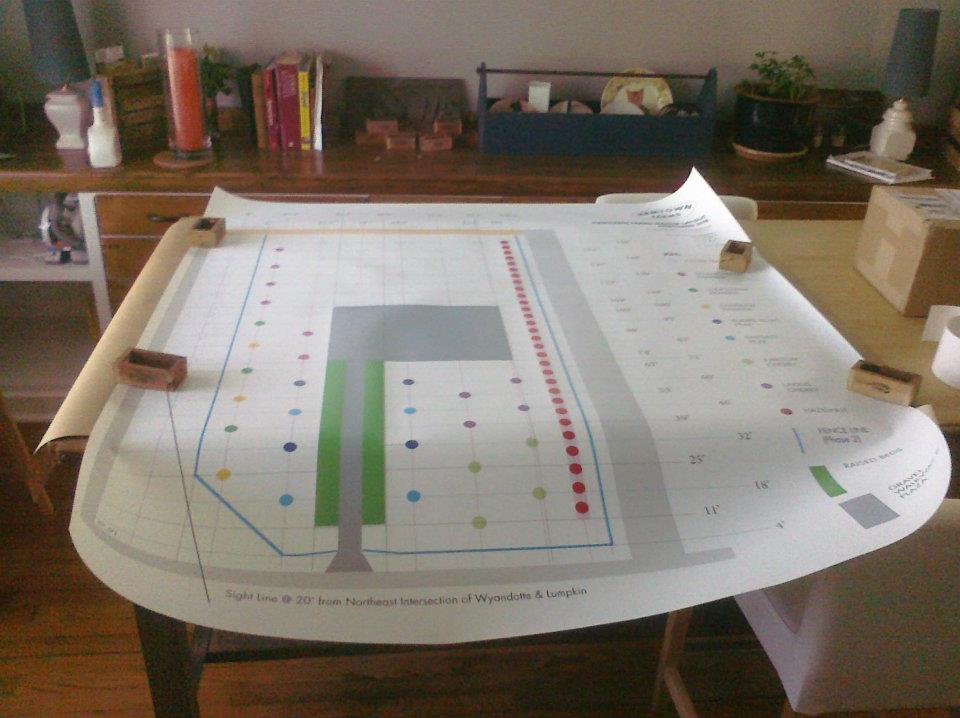
Plans for Hamtown Farms, photo credit: Michael Davis, used with permission
However, the farm’s neighbor, Kowalski Sausage, had other ideas. Never a supporter of the farm and certainly not one of their sponsors, Kowalsk offered $3,000 for the five lots, $100 more for each lot that Hamtown Farms had offered. With no funding to speak of, no process for making counter offer in place, and no guarantee that they would actually be able to purchase the lots, they were at an impasse.
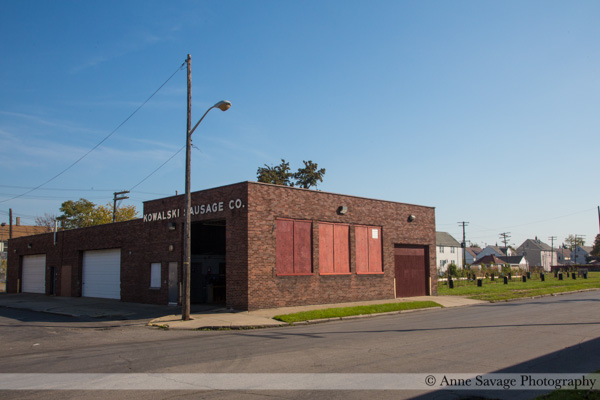
Kowalski Sausage building with farm behind, photo credit: Anne C. Savage
This past week, Fox News Detroit reported it this way:
I spoke to Michael Davis about their situation. He told me that, when they first started working on the project, the owner of Kowalski Sausage was very friendly. However, as soon as he learned that Hamtown Farms didn’t own the property, he no longer took their calls, even though they’ve attempted to contact him more than a dozen times. Hamtown Farms has many businesses sponsoring their efforts but Kowalski Sausage, their immediate neighbor, is not one of them.
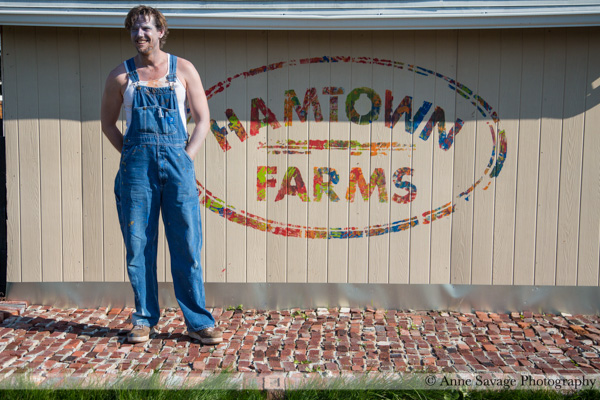
Michael Davis, dressed as a zombie farmer for Halloween, photo credit: Anne C. Savage
After the hue and cry from Fox News Detroit’s reporting, Emergency Manager Square changed her mind about selling the lots directly to Kowalski and decided to put them up for auction. “I’ve made the decision to put the 5 lots up for auction,” she told me. “Because Hamtown Farms wants to counter offer Kowalski’s offer, the only fair thing to do will be to let them both go to auction.”
When Davis learned of this, he was quite excited. At least now Hamtown Farms has an opportunity to make an offer.
I’m not so upbeat as he is. Hamtramck is literally the most densely-populated city in Michigan and the 11th most densely-populated city in the United States. According the Davis, Emergency Manager Square said in a public meeting that “Hamtramck doesn’t have a revenue problem, it has a spending problem”. If this is the case, squeezing an extra few hundred dollars from these lots where such an incredible project is already under way is ludicrous. It reveals what we all already know about Emergency Managers: they are armed only with the tools of DEstruction and have no tools to focus on CONstruction. They have no ability or incentive to invest in the future because of this. And promoting a project like Hamtown Farms requires investment, investment that will pay off in the future in terms of making Hamtramck a better place to live.
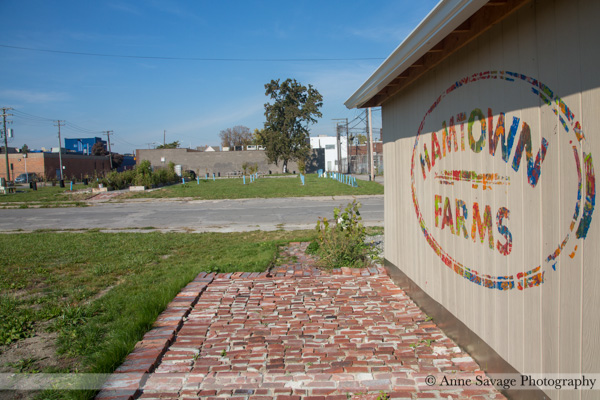
Hamtown Farms with Kowalski Sausage in the distance, photo credit: Anne C. Savage
I asked Mayor Majewski what she thinks about this situation. “Community development and economic development are two sides of the same coin,” she said. “Kowalski Sausage and Hamtown Farms have many points of potential synergy and both want to continue investing in this city and its people. All parties have an obligation to come together in good faith, with mutual respect, and with the community good at heart to find a solution that allows the Kowalski company to plan for future expansion while not displacing Hamtown Farms.”
If Mayor Majewski were in charge, you get the sense that she would be working to find common ground in this situation. The Emergency Manager’s response is to avoid the messy business of mediating and negotiating and simply auction the lots off to the highest bidder.
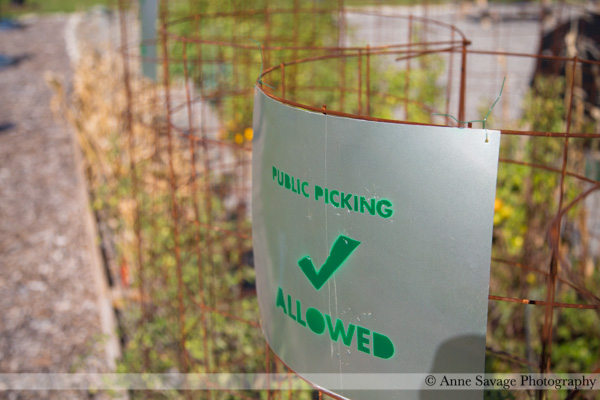
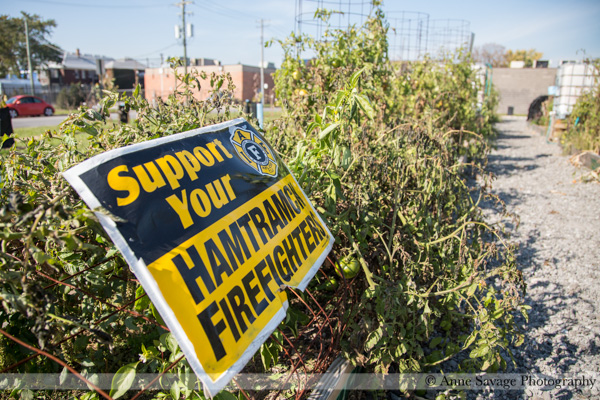
Photo credit: Anne C. Savage
Dan Gilmartin is the Executive Director and CEO of the Michigan Municipal League and author of the book The Economics of Place. In his book, Gilmartin explains that the key to economic success for municipalities is to build a place where people want to come, to live, to raise kids, and to prosper. Rather than a race-to-the-bottom effort to compete with neighboring cities by cutting corporate taxes and making other concessions, cities should invest in making their communities more attractive places where people want to live.
I asked him about urban farms and community gardens and how they fit into the idea of creating prosperity in an area even if they don’t bring in revenue directly.
“Open spaces and community gathering spots are becoming even more important within the urban fabric,” said Gilmartin. “They look good, act as catalysts for healthy community engagement and numerous studies have shown the quality open spaces add value to the properties in the area.”
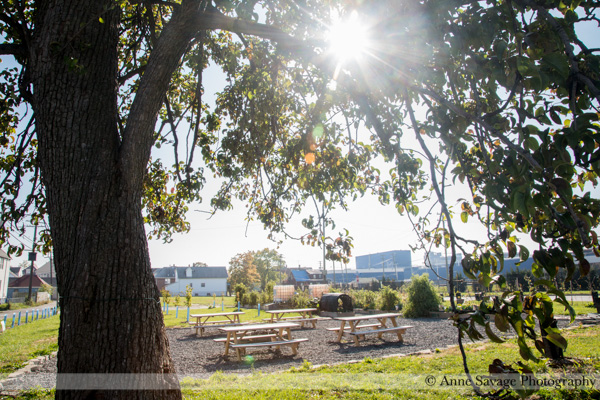
Public picnic area at Hamtown Farms, photo credit: Anne C. Savage
In other words, it’s an INVESTMENT, a tool Emergency Managers are not equipped with. They are in it for the short term, to get the books in order by cutting spending and all that entails, not to invest in the future. Davis said he’s heard Cathy Square tell people more than once, “I’m out of here in a year.”
Emergency Manager Square is taking the easy way out by putting these lots up for auction. While she may believe this is “the only fair thing” to do, it’s certainly not the RIGHT thing to do. Also, in terms of fairness, she’s wrong about that. With nearly $40,000 invested in these five lots, Hamtown Farms has already thrown money into the pot. Any offer from Kowalski Sausage should start with them having to ante up at least a portion of that amount as a starting point before bidding even begins.
On top of that, this situation brings the ability of an Emergency Manager to wipe away agreements into sharp focus. The promissory note signed by Mayor Majewski is worthless once an Emergency Manager deems it so.
The good news is that Hamtown Farms has received what Michael Davis is calling “mind blowing support”. They have created a fundraising page at the crowd-funding website Indiegogo. Click HERE to make a contribution. It is their hope that they will raise enough money to be able to outbid any other groups in the auction, including Kowalski Sausage, and then own the property outright.
One more thing: this is a major opportunity lost by Kowalski Sausage. They could be the good guys here, the good corporate citizen that made an investment in their community to make it a better place to live. Instead, they have chosen not to do this and, in fact, to do the exact opposite. They told Emergency Manager Square that they didn’t have any specific plans for the land, they “just wanted to have it”. They told Fox News Detroit it would be turned into a “parking lot or a buffer”. What could have been a tremendous contribution to the community is ending up being a public relations disaster for Kowalski Sausage. If they see turning this remarkable farm space into a parking lot as somehow a good thing will benefit them, they are decidedly wrong. It’s hard to imagine why they think this is a good approach.
If you have a few minutes, I highly commend your attention to this video about Hamtown Farms from the “Under the Radar Michigan” show. You’ll get to hear Michael Davis and the other organizers talking about the farm and even get to see the local fire department, which has a garden plot in the garden, watering the gardens with their firetruck.
Visit the Hamtown Farms website HERE and put a like on their Facebook page HERE. Please consider making a contribution to their auction fund HERE.
Hat tip to Eclectablog reader Jon Gustafson who brought this story to my attention.



